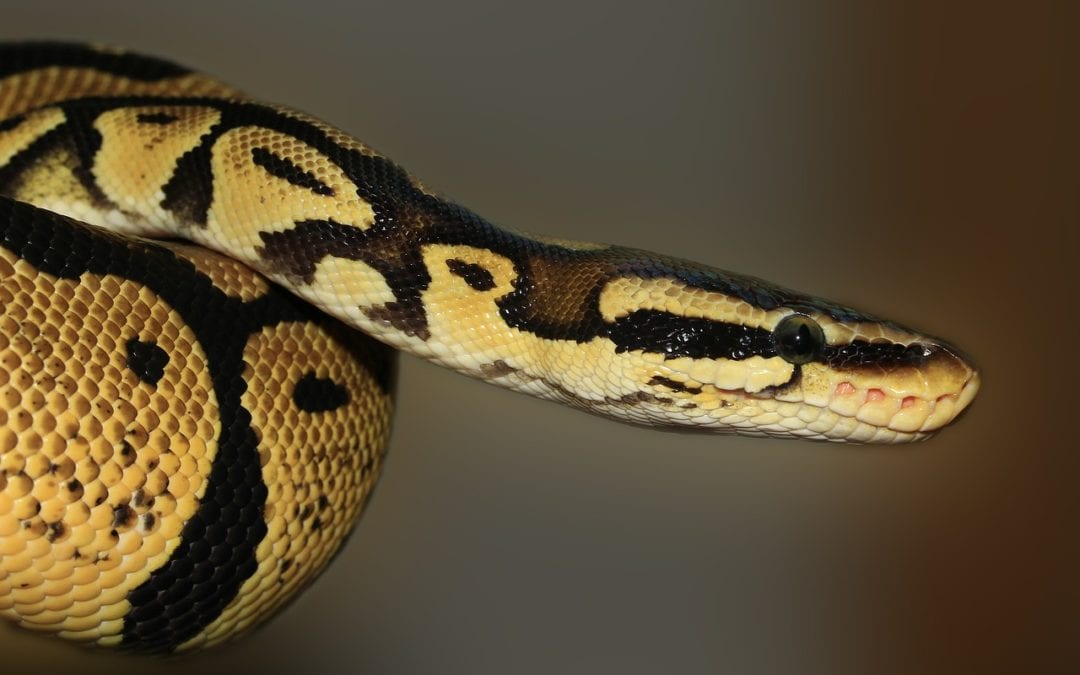Generally, snakes try to avoid people and their pets. They typically bite only as a last resort. The knowledge of their lack of desire to bite often does not comfort us when we approach these sliding invaders. It is very common for dogs and cats to harass snakes and as a result may get bitten. Snakes may also bite when stepped on so ALWAYS watch your step!!! Snakes help protect your garden and yard by eating rodents and insects. Many of the snakes you will encounter are not a problem other than their erie appearance. Rat Snakes, which are commonly found around Trophy Club, tend to be very aggressive snakes when messed with, are large, but luckily are non-venomous. Rat snakes are actually constrictors.
Two other common snakes in the neighborhood include copperheads and water moccasins. Unlike rat snakes, these are poisonous. Copperheads are the most common venomous snake bite in the United States. The most common fatality due to snake bites are actually from rattlesnake envenomation. Rattlesnake envenomation is less common but certainly has occurred in our surrounding areas.
Tips to protect your pets/yard:
- Keep yards mowed and do not store wood or junk piles
- Remove weeds or brush around your home
- When hiking, stay on open paths
- Do NOT allow your dogs to dig under rocks, explore holes, or in/around logs
- If you see a snake, remember it can strike half the distance of its body length. Make noise and allow it to go away prior to passing in efforts to avoid exposure to a venomous bite. Do NOT try to capture the snake.
- The less shelter and food you have around your home for snakes, the less likely they are to live in your yard. Snakes commonly eat rodents and insects. Take care of your rodent and insect population and the snakes will go elsewhere to find shelter and food.
- If in a location where western diamondback rattlesnakes are known to live, discuss “snake-bite vaccine” with your primary care veterinarian. This vaccine is venom-specific and has pros and cons. Please discuss thoroughly with your veterinarian regarding risks and benefits prior to proceeding with this vaccination.
- Do NOT allow your pets to play with or explore a dead snake. Dead snakes can have some muscle contractions after death and have been known to bite. They are capable of envenomation after death. Do not handle a dead or injured snake – not even a decapitated head.
Snake venom consist of multiple components that are designed to immobilize and digest prey. The types of toxins found in snake venom varies between species. Common toxins effect multiple organs including: the neurologic system (causing progressive paralysis of respiratory muscles), muscles (causing destruction to muscle fibers and cells), clotting and platelets (causing bleeding tendencies and reversible clotting problems), kidneys (causing toxic effects to the kidneys), heart (a depression factor that causes severe low blood pressure), and cells (causing local pain, swelling, and tissue death at the bite site).
Treatment for a snake bite includes:
- Diagnostic work-up to confirm snake envenomation (CBC, blood smear, chemistries, and clotting profile)
- Pain control
- Clipping and cleaning the wounds
- Treatment for hypovolemic shock
- Broad-spectrum antibiotics
- -+/- Antivenin or plasma transfusions. These treatments have certain indications. Antivenin is best administered immediately after confirmed venomous snake envenomation but is not always necessary in the treatment of a venomous snake bite.
Most importantly get your pet to a veterinary facility as soon as possible after a snake bite. Snake bites can cause life threatening effects to the body as soon as minutes after the bite and delayed up to 8 hours.
This is a common side effect secondary to venomous snake bites. Often times the tissue necrosis will heal with appropriate perfusion, antibiotics, and pain control, but on occasion, it can require surgery and skin grafts.

